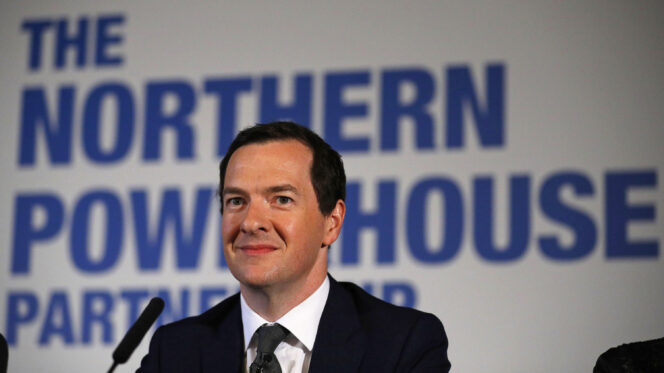This Election Must Be the Last One With Our Absurd Voting System
First-past-the-post ruins politics.
by Adam Ramsay
2 July 2024

Criticism of our ridiculous voting system often focuses on mathematical fairness. People argue against first-past-the-post, or simple plurality, because it can give a party with around 40% of the votes an enormous majority of seats – as we are likely to see on Friday. The same system can also deliver a distinct minority, as Jeremy Corbyn found in 2017. In a sensible system, vote share and seat share would align.
But the worst thing about it is the disastrous way in which it infects so much of the political conversation in this country.
Sitting in a local cafe this week, I couldn’t help but overhear a conversation two young women were having behind me. They didn’t like Keir Starmer’s Labour, they agreed: they preferred the Scottish National party and the Greens. But maybe, they reasoned, they’d have to vote for Labour – to get the Tories out.
Like me, these two young women live in Edinburgh East and Musselburgh. While it is a new constituency, the two old seats it has been created from were both SNP/Labour contests in the last election. The Tories will be lucky if they come a distant third this time.
If, despite all the evidence, there is a hung parliament, there is no chance of SNP MPs propping up a Conservative government. And in any case, the polls are clear that the Tories are about to be eviscerated: Edinburgh East is one of hundreds of constituencies across the UK where voters can choose who they wish, confident that they won’t wake up with a Conservative MP.
But those two young women aren’t the only people I’ve heard express the same sentiment around here in recent weeks: if there is one line that keeps getting repeated, it’s some version of “we have to vote Labour to get the Tories out”.
Perhaps that’s not surprising. We all want the Conservatives gone. And if I think about all of the many leaflets we’ve had through the door from various parties, it’s the only message I can remember: though the wording varies, it is emblazoned across every Labour flyer. In many ways, it has become the mantra of this election.
Yet it functions as a sort of electoral disciplining. “You might prefer someone else,” Labour is saying to voters, “but we’re the only alternative to the Conservatives, so you have to vote for us anyway.”
The subtext is pretty obvious. “Abandon your hopes: vote against your fears.”
In Liberal Democrat target seats, you see a similar message mobilised powerfully under the slogan “winning here!”. The party functions by pushing tens of thousands of leaflets through letterboxes telling voters that only the Lib Dems can beat the Tories/Labour/SNP in this constituency. They have an internal mantra about the slogan: repeat it until it’s true.
Across the UK, one in five people say they are voting ‘tactically’ to defeat the Tories. In other words, a fifth of the electorate feels forced to support someone other than their preferred candidate in order to get rid of someone they like even less.
But I suspect the real number is bigger than that, because first-past-the-post shapes everything about how we do elections. The media focuses so heavily on the Labour/Tory fight (with the odd Nigel Farage novelty performance) that millions barely consider other options.
Smaller parties like the Greens are forced to target their campaigns so tightly on a tiny number of seats that most voters never even hear from them, let alone seriously think about voting for them. Where they do campaign, messages designed to reassure voters that this seat is one of the places they can win are so dominant that arguments about the radical changes we need to make in the world get crowded out.
On the one hand, this means voters feel forced to try to become psephologists. When I have brief interactions with neighbours about the election, about 90% of the time is taken up with discussions of who can win here – what votes they believe to be ‘wasted’ and which aren’t. But in reality, most of us are bad predictors of each other’s behaviour, meaning millions end up voting ‘tactically’ in ways which don’t really make much sense at all – like voting Labour to keep the Tories out in seats where the Tories are, in reality, never going to win.
On the other hand, it means we don’t spend that time, effort and headspace thinking or talking about what we want for the world. Little chats with friends and neighbours, overheard in cafes or on the nursery run don’t revolve around who has the best position on Gaza or climate breakdown, or who will fight for a fairer economy. That conversation is shut out by the one about who does or does not have a chance of winning here. Voters are forced away from something we are excellent at – determining what policies represent our material interests and values – towards something we are terrible at: trying to game a stupid system.
To help us do this, some money and effort is thrown at tactical voting sites. But these strip local voters of agency, making the whole process even less democratic. Consider, for example, the Isle of Wight East.
Before this election, the island in the English Channel was one constituency – the most populous in the UK. Now, it’s been divided into two. Over the last decade, the seat has been one of the Greens’ strongest. The party came a strong third in 2015, 2017 and 2019 – ahead of Labour in 2015, a bit behind them in 2017 and 2019.
Progressives on the island decided that the best way to ensure neither of the new seats went Tory was to hold a primary. Nearly a thousand local voters took part, and backed the Greens’ Vix Lowthion as the best chance in Isle of Wight East, ahead of the Labour and Lib Dem candidates. There is now a vigorous vote-swap campaign underway, encouraging Green supporters in Isle of Wight West to back Labour, and Labour supporters in Isle of Wight East to vote Green. Despite this, the website tactical.vote recommends voting Labour in both seats, on the grounds that the party came second across the whole island last time.
But yet again, the fundamental problem is the first-past-the-post system itself: a thousand progressive voters on the Isle of Wight used up what time they had for political organising not to mobilise for tougher action on climate change or a fairer economic system or whatever else they believe in. They were forced to spend their time working out how best to game the electoral system.
There is a similar problem in France this week: while the far right came first in Sunday’s first round, they did so with only a third of the vote. If France’s parliament were elected proportionally, then the centre and left would be spending this week making their different appeals to voters, convincing them to turn out against the fascists. Afterwards, they would likely form some kind of coalition.
Instead, within France’s majoritarian system, the two blocs are desperately negotiating over who is going to stand which candidates down where. If they fail, National Rally could take control of the parliament with support from only 33% of the electorate.
In this election, it is Starmer’s Labour that will do disproportionately well from the absurdities of the British voting system. But, with the Tories collapsing, is it hard to imagine Farage following Marine Le Pen, consolidating the British far right, and finding first-past-the-post working for, rather than against him in the following election?
We need to make sure this ridiculous system has been replaced before he’s given that chance.
Adam Ramsay is a Scottish journalist. He is currently working on his forthcoming book Abolish Westminster and writes a substack of the same name.


